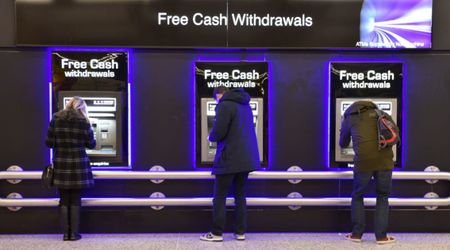Do you store money in Venmo or PayPal? US government agency warns it's not as safe as you think

The switch from cash to online payment apps happened on a massive scale in a short time during the Covid era, but that also made people vulnerable to data theft and fraud. Although several consumers are used to having money on apps such as Venmo, the Consumer Financial Bureau doesn't think it's a good idea. Storing one's money in a Venmo account is risky since it isn't insured.

According to this analysis, companies might hold and invest funds that aren't automatically transferred to a bank account linked to the app. This means that the money in the account is not secured by the Federal Deposit Insurance Commission, which can protect up to $250,000.

Additionally, user agreements often don't tell consumers where their funds are going or what happens to them if the app shuts down. "As tech companies expand into banking and payments,” CFPB director Rohit Chopra said in a statement, “the CFPB is sharpening its focus on those that sidestep the safeguards that local banks and credit unions have long adhered to." Millions of Americans use these mobile payment apps to send money to friends or family, apart from making payments to retailers without knowing that it isn't protected by insurance. According to the New York Times, the transaction volume on such apps was estimated at $893 billion last year, the bureau said and the number is projected to reach $1.6 trillion by 2027.
"Popular digital payment apps are increasingly used as substitutes for a traditional bank or credit union account but lack the same protections to ensure that funds are safe," Rohit Chopra, the consumer bureau’s director, said in an official statement.
The Federal Deposit Insurance Commission (FDIC) only works for people who have accounts in banks such as the Silicon Valley Bank, Signature Bank, and First Republic Bank. That same protection isn't guaranteed on payment apps. But, these apps do team up with these banks to offer accounts with “pass-through” F.D.I.C. insurance protection. Users may have to sign up for certain services to activate this protection, as per the bureau. For instance, Cash App balances can be covered by an F.D.I.C insured partner bank if a user successfully applies for the company's debit card. Also, if an adult sponsors an account for a minor, balances in both accounts are insured by the F.D.I.C., according to Cash App’s website. All of this is pretty difficult to keep track of, said Amy Zirkle, the consumer bureau’s senior program manager for payments and deposits markets. "Some user agreements are murky and not necessarily understandable for consumers," she said in an interview.

Hence, it's best to move money from the payment app accounts to your bank account, since it's a lot safer there. The Federal Consumer Bureau also suggests that consumers set up an automatic reminder that offers a link in the advisory to send email reminders to themselves and others — to move funds. "Think about the amount of money you keep on the app," Ms. Zirkle said.
























